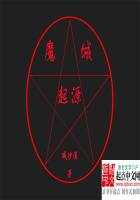What he looked he felt.He was in the agricultural world, but not of it.He served fire and smoke; these denizens of the fields served vegetation, weather, frost, and sun.He travelled with his engine from farm to farm, from county to county, for as y et the steam threshingmachine was itiner ant in th is par t of Wes***.He spoke in a strang e nor thern accent; his thoug hts being turned inwards upon himself, his eye on his iron charge, hardly perceiving the scenes around him, and carin g for them no t at all:holding only strictly necess ary intercourse with the natives, as if some ancient doom compelled him to wander here against his will in the service of his Plutonic master.The long strap whichran from the driving-wheel of his eng ine to the red thresher under the rick was the sole tie-line between agriculture and him.
While they uncovered the sheaves he stood apath etic beside h is portable repository of force, ro und whose hot blackn ess the morning air quivered.He had nothing to do with p reparatory labour.His fire was waitin g incandescent, his steam was at high pressure, in a fe w seconds he could make the long strap move at an invisible velocity.Beyond its extent the environment might be corn, straw, or ch aos; it was all the sam e to him.If any of the au tochthonous idlers asked him what he called himself, he replied shortly, “an engineer.”
The rick was unhaled by full daylight; the men then took their places, the women mounted, and the work began.Farmer Groby—or, as they called him, “he”—had arrived ere th is, and by his orders Tess was placed on the p latform of the machine, close to the man who fed it, her business being to untie every sheaf of corn handed on to her by Izz Huett, who stood next, but on the rick; so that th e f eeder cou ld se ize it and sp read it over the revo lving dru m, whic h whisked out every grain in one moment.
They were soon in fu ll progress, atter a prepar atory hitch or two, which rejoiced the hear ts of those who h ated machinery.The work sped on till breakfast-time, when the thresher was stopped f or half an hour; and on starting again after the meal the whole supplementary strength of the farm was thrown into the labour of constru cting the straw-rick, which began to grow beside the stack o f cor n.A has ty lunch was eaten as th ey stood, witho ut leav ing their positions, and then another couple of hours brought them near to d inner-time; the in exorable wheels continu ing to spin, and the penetr ating hum of the thresher to thrill to the very marrow all who were near the revolving wirecage.
The old men on the rising straw-rick talked of the past days when they had been accustomed to thresh with flails on the oaken barn-floor; when everything, even to win nowing, was ef fected by hand-labour, which, to their th inking, though slow, produced better results.Those, too, on the corn-rick talked a little; but the perspiring ones at the mach ine, including Tess, could not ligh ten their duties by the exchange of many words.It was the cease lessness of the work which tr ied her so sev erely, and beg an to make her wish that she h ad never come to Flintcomb-Ash.The women on the corn-rick—Marian, who was oneof them, in particular—could stop to drink ale or cold tea fro m the flagon now and then, or to exchange a few gossiping remarks while they wiped their faces or cleared the frag ments of straw and husk fro m their cloth ing; but for T ess there was no respite; for, as the drum never stopped, the man who fed it could not stop, and she, who had to sup ply the man with untied sheaves, could not stop either, unless Marian changed places with h er, which she sometimes did for half an hour in spite of Groby's objection that she was too slow-handed for a feeder.
For some pr obably economical reason it was usu ally a wo man who was chosen for this particular duty, and Groby gave as his motive in selecting Tess that sh e was one of th ose who best co mbined strength w ith quickness in untying, and both with staying power, and this may have been true.The hum of the thresher, which prev ented spee ch, in creased to a ravin g wheneve r the supply of corn fell short of the regular quantity.As Tess and the man who fed could never turn their heads she did not know that just before the dinner-hour a person had come silently into the field by the gate, and had been standing under a second rick watching the scene, an d Tess in particu lar.He was dressed in a tweed suit of fashionable pattern, and he twirled a gay walking-cane.
“Who is that?”said Izz Huett to Ma rian.She ha d at first a ddressed th e inquiry to Tess, but the latter could not hear it.
“Somebody's fancy-man, I'spose, ”said Marian laconically.
“I'll lay a guinea he's after Tess.”
“O no.'Tis a ranter pa'son who's been sniffing after her lately; not a dandy like this.”
“Well—this is the same mam.”
“The same man as the preacher?But he's quite different!”
“He hev left of f his black coat and white neckercher, and hev cut of f his whiskers; but he's the same man for all that.”
“D'ye really think so?Then I'll tell her, ”said Marian.
“Don't.She'll see him soon enough, good-now.”
“Well, I don't think it at all right for him to join his preaching to courting a married woman, even though her husband mid be abroad, and she, in a sense, a widow.”
“Oh—he can do her no harm, ”said Izz drily.“Her mind can no more be heaved from that on e place where it do bide than a stooded w aggon from the hole he's in.Lord love'ee, neither court-paying, nor preaching, nor the seven thunders themselves, can wean a wo man when't would be b etter for h er that she should be weaned.”
Dinner-time came, and the whirling ceased; whereupon Tess left her post, her knees tr embling so wretched ly with the sha king of the machine th at sh e could scarcely walk.
“You ought to bet a qu art o'drink into'ee, as I've done, ”s aid Mar ian.“You wouldn't look so white then.Why, souls above us, your face is as if you'd been hag-rode!”
It occurred to the go od-natured Marian that, as Tess was so tired, h er discovery of her v isitor's presence might have the bad effect of taking away her appetite; and Marian was thinking of inducing Tess to descend by a ladder on the further side of the stack when the gentleman came forward an d looked up.
Tess uttered a short little“Oh!”And a moment after she said, quickly, “I shall eat my dinner here—right on the rick.”
Sometimes, when they were so far from their cottages, they all did this; but as there was rather a k een wind goin g to-day, Marian a nd the rest descended, and sat under the straw-stack.
The new-co mer was, in deed, Alec d'Urbervill e, the late Evangelist, despite his changed attire and aspect.It was o bvious at a glance that the original Weltlust had come back; that he had r estored himself, as near ly as a man could do who h ad grown three or four y ears older, to th e o ld jaunty, slap-dash gu ise under w hich Tess h ad first kno wn her ad mirer, and co usin so-called.Having decided to remain where she was, Tess sat down among the bundles, out of sight of the ground, and began her meal; till, by-and-by, she heard footsteps on the ladder, and immediately after Alec appeared upon the stack—now an oblong and lev el platform of sheaves.He stro de across them, and sat down opposite to her without a word.
Tess continued to eat her modest dinner, a slice of thick pancake which she had brought with her.The other workfolk were by this time all gather ed underthe rick, where the loose straw formed a comfortable retreat.
“I am here again, as you see, ”said d'Urberville.
“Why do y ou trouble me so!”she cr ied, reproach flashing from her very finger-ends.
“I trouble you?I think I may ask, why do you trouble me?”
“Sure, I don't trouble you any-when?”
“You say you don't?But you do!You haunt me.Those very eyes that you turned upon me with such a bitter f lash a moment ago, they come to me just as you showed them then, in the night and in the day!Tess, ever since you told me of that ch ild of ours, it is just as if m y feelings, which had been flowin g in a strong puritanical stream, had suddenly found a way open in the direction of you, and had all at once gushed thr ough.The r eligious ch annel is left dry forthwith; and it is you who have done it!”
She gazed in silencc.
“What—you have given up your preaching entircly?”she asked.
She had gathered fro m Angel suf ficient of the incredulity of moder n thought to d espise flash enthusiasms; but, as a woman, she was so mewhat appalled.
In affected severity d'Urberville continued—
“Entirely.I have broken every engagement since that af ternoon I was to address the drunkards at Casterb ridge Fair.The deuce only knows what I am thought of by the brethren.Ah-ha!The brethren!No doubt they pray for me—weep for me; for they are kind peop le in the ir way.But what do I care?How could I go on with the thing when I had lost my faith in it?—it would have been hypocrisy of the basest kind!Among them 1 should have stood like Hymenteus and Alexander, who were deliver ed over to Satan that they might learn not to blaspheme.what a gran d revenge y ou have tak en!I saw y ou innocent, and I deceived you.Four y ears after, you find me a Christian enth usiast; you then work upon me, perhaps to my complete perdition!But Tess, my coz, as I used to call y ou, this is only my way of talkin g, and you must not look so hor ribly concerned.Of course you have done nothing except retain your pretty face and shapely fig ure.I saw it on the ri ck be fore you sa w me—that tight pinafore-thing sets it of f, and that wing-bonnet-y ou field-girls should neverwear those bonnets if you wish to keep out of danger.“He regarded her silently for a few moments, and with a short cynical laugh resumed:“I believe that if the bachelor-apostle, whose deputy I thought I was, had been tempted by such a pretty face, he would have let go the plough for her sake as I do!”
Tess attempted to expostulate, but at this juncture all her fluency failed her, and without heeding he added:
“Well, this paradise that you supply is perhaps as good as any other, after all.But to speak seriously, Tess.”D'Urberville rose and came nearer, reclining sideways amid the sheaves, and resting upon his elbow.“Since I last saw you, I have been thinking of what you said that be said.I have come to the conclusion that there does seem rather a want of common-sense in these threadbare old propositions; how I could have been so fired by poor Parson Clare's enthusiasm, and have gone so madly to work, transcending even him, I cannot make out!As for what y ou said las t time, on the streng th of y our wonderful husband's intelligence—whose name y ou hav e nev er told me—about having what they call an ethical system without any dogma, I don't see my way to that at all.”
“Why, you can hav e the religion of loving-kindness and pu rity at least, if you can't have—what do you call it—dogma.”
“O no!I'm a different sort of fellow from that!If there's nobody to say, ‘Do this, and it will be a good thing for you after you are dead; do that, and it will be a bad thing for y ou, 'I can't warm up.H ang it, I am not going to feel responsible for my deeds and passion s if there's nobody to be responsible to; and if 1 were you, my dear, I wouldn't either!”
She tried to argue, and tell h im that he had mixed in his dull brain tw o matters, theology and morals, which in the primitive days of mankind had been quite d istinct.But owing to Angel C lare's reticen ce, to he r ab solute wan t of training, and to h er being a v essel of emotions rather than reasons, she co uld not get on.
“Well, never mind, ”he resumed.“Here I am, my love, as in the old times!”
“Not as then—never as then—'tis dif ferent!”she entr eated.“And the rewas never warmth with me!O why didn't you keep your faith, if the loss of it has brought you to speak to me like this!”
“Because you've knock ed it ou t of me; so th e evil be upon your sweethead!Your husband little thought how his teaching would recoil upon him!Ha-ha—I'm awfully glad you have made an apostate of me all the same!Tess, I am more taken with you than ever, and I pity you too.For all your closenes s, I see you are in a bad way—neglected by one who ought to cherish you.”
She could not get h er morsels of food down her throat; her lips were dry, and she was ready to choke.The voices and laughs of the workfolk ea ting and drinking under the rick came to her as if they were a quarter of a mile off.
“It is cruelty to me!”she said.“How—how can you treat me to this talk, if you care ever so little for me?”
“True, true, ”he said, win cing a little.“I did not co me to reproach you for my deeds.I came, Tess, to say that I don't like you to be working like this, and I have come on purpose for you.You say you have a husband who is not I.Well, perhaps you have; but I've never seen him, and you've not told me his name; and altogether he seems rather a mythological personage.However, even if you have one, I think I am nearer to you than he is.I, at any rate, try to help you out of troub le, b ut he does n ot, b less his invis ible face!The wor ds of the ster n prophet Hosea that I used to read come back to me.Don't you know them, Tess?—‘And she shall follow after her lover, but she shall not overtake him; and she shall seek him, but shall not find him; then shall she say, I will go and return to my first husband; for then was it better with me than now!'……Tess, my trap is waiting just under the hill, and—darling mine, not his!—you know the rest.”
Her face had been rising to a dull crimson fire while he spoke; but she did not answer.
“You have been the caus e of my backsliding, ”he continued, stretching his arm towards her waist; “you should be willing to share it, and leave that mule you call husband for ever.”
One of her leather gloves, which she had taken off to eat her skimmer-cake, lay in her lap, and witho ut th e sligh test warn ing she passion ately swung the glove by the gauntlet directly in his face.It was heavy and thick as a warrio r's, and it s truck him flat on the mouth.Fancy might have regarded the act as the recrudescence of a tr ick in which her armed progenitors were not unpractised.Alec fiercely started u p from his reclining position.A scarlet oozing appeared where her blow had alighted, and in a moment the blood began dropping fromhis mouth u pon the s traw.But he s oon controlled him self, calmly drew his handkerchief from his pocket, and mopped his bleeding lips.
She too had sprung up, but she sank down again.
“Now, punish me!”she said, turning up her eyes to him with the hopeless defiance of the sparrow's gaze befor e its c aptor twists its ne ck.“Whip me, crush me; you need not mind those people under the rick!I s hall not cry out.Once victim, always victim—that's the law!”
“O no, no, Tess, ”he said blandly.“I can make full allowance f or this.Yet you most unjustly forget one thing, that I would have married you if you had not put it out of my power to do so.Did I not ask you flatly to be my wife—hey?Answer me.”
“You did.”
“And you cannot be.But remember one thing!”His voice hard-ened as his temper got the better of him with the recollection of his sincerity in asking her and her pres ent ingratitude, and he stepped across to her side and held her by the shoulders, so that she shook under his grasp.“Remember, my lady, I was your master once!I will be your master again.If you are any man's wife y ou are mine!”
The threshers now began to stir below.
“So much for our quarrel, ”he said, letting her go.“Now I shall leave you, and shall come again for your answer during the afternoon.You don't know me yet!But I know you.”
She had not spoken again, remaining as if stunned.D'Urberville retreated over the sheaves, and descended the ladder, while the workers below rose and stretched th eir ar ms, and shook down the beer they had drunk.Then the threshingmachine started afresh; and amid the renewed rustle of the str aw Tess resumed h er position by the b uzzing dru m as one in a dream, unty ing s heaf after sheaf in endless succession.
48
In the afternoon the far mer made it known that the rick was to b efinished that night, since there was a moon by which they could see to work, and the man with the en gine was en gaged for another far m on the morrow.Hence th e twanging an d hu mming and rustlin g proceed ed with even less intermission than usual.
It was no t till“nammet”-time, about three o'clock, th at Tess raised her eyes and gav e a momentary glance ro und.She felt but little sur prise at seeing that Alec d'Urberville had come back, and was standing under the hedge by the gate.He had seen her lift her ey es, and waved his hand urbanely to her, while he blew her a kiss.It meant that their quarrel was over.Tess looked down again, and carefully abstained from gazing in that direction.
Thus the af ternoon drag ged on.The wheat-rick shrank lower, and th e straw-rick grew higher, and the corn-sacks were carted away.At six o'clock the wheat-rick was about s houlder-high fro m th e ground.But the un threshed sheaves re maining unto uched se emed coun tless stil l, no twithstanding the enormous numbers that had been gulped down by the insatiable swallower, fed by the man and Tess, through whose two young hands the greater part of them had passed.And the immense stack of straw wh ere in th e morning there had been nothing, appeared as the faces of the same bu zzing red glutton.From the west sky a wrathful shine—all t hat wild March could afford in th e wa y of sunset—had burst forth after the cloudy day, flooding the tired and sticky faces of the threshers, and dy eing th em with a cop pery ligh t, as a lso the f lapping garments of the women, which clung to them like dull flames.
A panting ache ran through the rick.The man who fed was weary, and Tess could see that the red nape of his neck was encrusted with dirt and husks.She still stood at her post, her flushed and perspiring face coated with the corn-dust, and her white bonnet embrowned by it.She was the only woman whose place was upon th e machine s o as to b e shaken bod ily b y its spinning, an d the decrease of the stack now separated her from Marian and Izz, and preven ted their changing duties with her as th ey had done.The incessant quivering, in which ev ery fibre of h er frame par ticipated, had thrown h er into a s tupefied reverie in w hich her arms worked on independ ently of her con sciousness.She hardly knew where she was, and did n ot hear Izz Huett tell her from below that her hair was tumbling down.
By degrees the fr eshest am ong th em beg an to grow cad averous an d saucer-eyed.Whenever Tess lifted her he ad sh e beh eld a lways the gr eat upgrown straw-stack, with the men in shirt-sleev es upon it, against the gr ay north sky; in front of it the long red elevator like a Jacob's ladder, on which a perpetual str eam o f th reshed str aw as cended, a y ellow r iver r unning up-hill, and spouting out on the top of the rick.
She knew that Alec d'Urberville was still on the scene, observing her from some point or other, though she could not say where.There was an excuse for his remaining, for when the threshed rick drew n ear its final sheaves a little ratting was always done, and men unconnected with the threshing sometimesdropped in for that performance—sporting characters of all deions, gents with terriers and facetious pipes, roughs with sticks and stones.
But there was anoth er hour's work before th e layer of live rats at the base of the stack would be reached; and as the even ing light in th e direction of the Giant's Hill by Abbot's-Gernel d issolved away, the white-faced moon of the season ar ose fro m the horizon that lay towards Middleton Abbey and Shottsford on the o ther side.For the last hour or two Marian had felt un easy about Tess, whom she could not get near enough to speak to, the other women, having kept up their strength by drinking ale, and Tess having done without it through traditionary dread, owing to its results at her ho me in childhood.But Tess still kept going:if she could not f ill her part she would have to leave; and this con tingency, which she would ha ve regard ed with equ animity and ev en with relief a month or two earlier, had become a terror since d'Urberville had begun to hover round her.
The sheaf-pitchers and feeders had now worked the rick so low that people on the ground could talk to them.To Tess's surprise Farmer Groby came up on the machine to her, and said that if she desired to join her friend he did not wish her to keep on any longer, and would send so mebody else to take her place.The“friend”was d'Urberville, sh e knew, and also that th is concession had been granted in obedience to the request of that friend, or enemy.She shook her head and toiled on.
The time fo r the rat-catching arr ived at last, an d the hunt began.The creatures had crept downwards with the subsidence of the rick till they were all together at the bottom, and being now uncovered from their last refuge they ran across th e o pen ground in all directions, a loud shriek fro m the by-this-time half-tipsy.Marian informing her co mpanions that one of the r ats had invaded her person—a terro r which the rest of th e women had g uarded ag ainst by various s chemes of ski rt-tucking a nd self-elevation.The rat was at last dislodged, and, amid the barking of dogs, masculine shouts, feminine screams, oaths, stampings, and confusion as of Pandemonium, Tess untied her last sheaf; the drum slowed, the whizzing ceased, and she stepped from the machine to the ground.
Her lover, who had only looked on at the rat-catching, was promptly at herside.
“What—after all—my insulting slap, too!”said she in an underbreath.She was so utterly exhausted that she had not strength to speak louder.
“I should indeed be foolish to feel offended at anything you say or do, ”he answered, in the seduc tive voice o f the Trantridge time.“How the little limbs tremble!You are as weak as a b led calf, you know you are; a nd yet you need have done nothing since I arrived.How could you be so obstinate?However, I have told the farmer that he has no right to employ women at steam-threshing.It is not pro per work for them; and on all the better class of f arms it has been given up, as he knows very well.I will walk with you as far as your home.”















